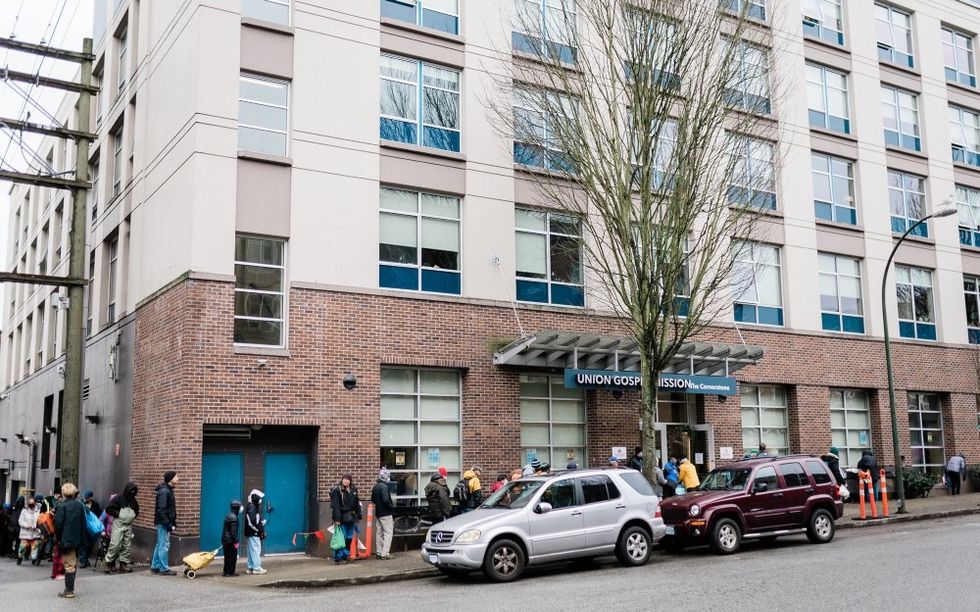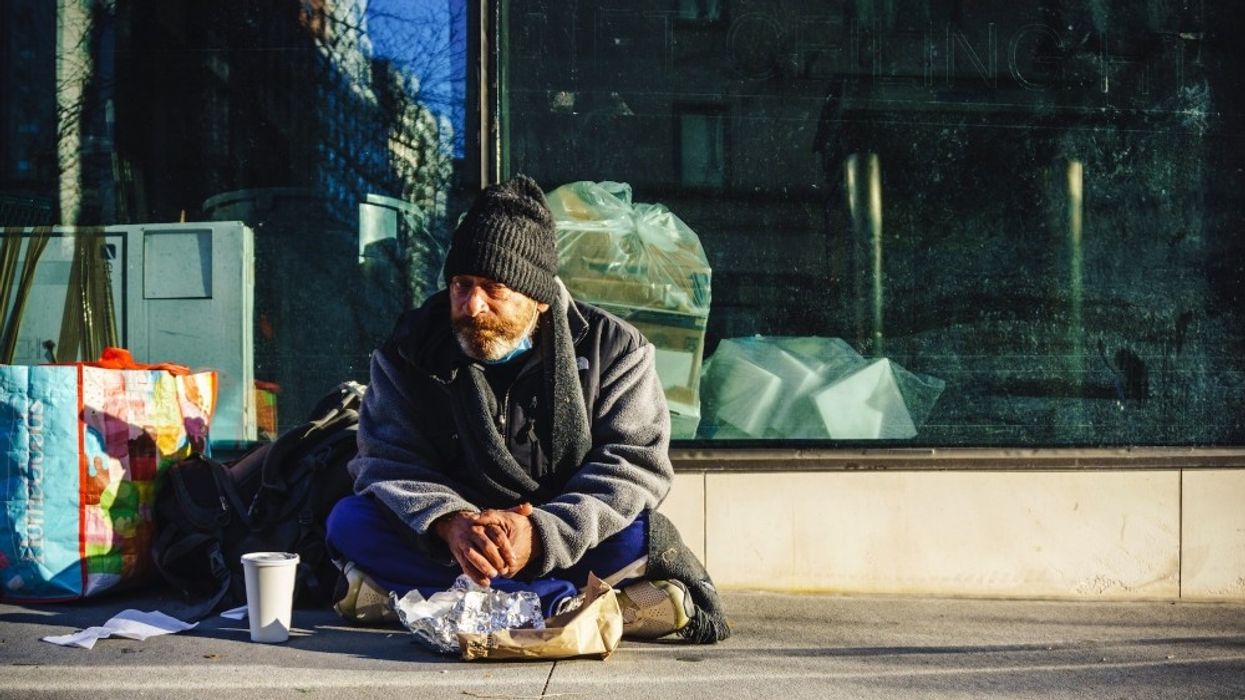Temperatures are dropping, meaning more people experiencing homelessness will be seeking out shelter. However, those operating the shelters are coming to terms with the cold reality that they'll have to turn away a large number of people this winter.
Every year since 2010, the City of Vancouver conducts a homeless count, where over the course of 24 hours in March, over 400 staff and volunteers tally the total amount of people living on the streets or inside shelters. The count was unable to happen in 2021 due to the COVID-19 pandemic, and the 2022 count was similarly cancelled.
The most-recent count that was conducted, in 2020, found that a total of 2,095 people identified as homeless. Of that total, 1,548 were living in shelters, detox centres, hospitals, or other places where they had no fixed address, and 547 were living on the streets of Vancouver.
In that same year, according to Government of Canada data, there was a total of 1,446 beds across 37 shelters in Metro Vancouver. The Canadian Observatory on Homelessness, a research institute dedicated to homelessness, says there were 3,634 people experiencing homelessness in Metro Vancouver that year, so whichever way you slice it, it's clear that there is a significant supply gap between available beds and the people who need them.
"There is a massive bottleneck in terms of housing," Nicole Mucci, a spokesperson for Union Gospel Mission (UGM), tells STOREYS, and circumstances have only been exacerbated recently. Mucci points to the string of fires that occurred over the past few months, which tore through numerous Single-Room-Occupancy (SRO) buildings, displaced countless more people, and is adding further strain to the shelter system.
RELATED: DTES Tent City Tensions Spotlight Vancouver’s Housing and Wealth Divide
The Cold Truth
Another layer will be added to the problem now that the winter months are within sight. Living on the streets, or outdoors in tents, becomes less viable as temperatures drop, which means more people will be seeking out shelters run by organizations like Union Gospel Mission.
Mucci says that UGM's facility used to have 72 beds, but they added 20 more mats and hired more staff during the COVID-19 pandemic. Their hope was that as the pandemic subsided, they could go back to just the 72 beds, but it's been more than clear that even 92 isn't enough.
UGM has been forced to turn away a total of 1,949 people since January, an average of six people each night. Mucci says that in previous years, there would usually be some beds available during the summertime, but that wasn't the case this year, so UGM is expecting that they'll have to turn away 20 people a night come January.

If you're somebody who's experiencing homeless and you walk in to the Union Gospel Mission's facility, and there is space available, you'll be welcomed in. If there are no beds available, the case worker will call around to other shelters and try to refer you. If there's no luck, the case worker will sit you down and tell you the heart-aching truth: you're going to be turned away.
"It's a really difficult conversation to have," Mucci says. "Everyone deserves to have a roof over their head and we try to treat them like a person, with dignity." Before you leave, they'll also try to make sure you have enough gear to help you stay warm and dry, but Mucci says that cold-weather supplies are already low as of early-November. (You can donate supplies here.)
This growing shelter shortage means people are dying.
According to a BC Coroners Service report published last month, 1,197 people experiencing homelessness died between 2012 and 2021, an average of about 120 every single year. Across those 120 months, July 2012 was the only month that did not see anybody experiencing homelessness die. In 2020, 141 people experiencing homelessness died. In 2021, 247 people experiencing homelessness died, a staggering 75% increase.
Mucci says in the six years she's been at UGM, somebody has died during the winter months every year.
What Can Be Done
The Canadian Mental Health Association (CMHA) recently made news because their Kamloops branch said they would close two winter shelters that were slated to open in November.
The Executive Director of CMHA Kamloops, Alfred Achoba, told STOREYS that the original agreement about the shelters was always temporary, and that operating two more shelters just wasn't a "healthy" decision for the organization. Achoba says that it isn't a money issue that makes it unfeasible -- they're largely funded through BC Housing -- but more so with staffing challenges and a lack of government support when it comes to housing.
"We service approximately 200 people a day in Kamloops," Achoba says. "And there are 300 more people on the waitlist for supportive housing. We would love to see more housing from governments. We need a more robust, well-thought-out plan."
RELATED: Here’s How BC Residents Feel About Various Ways To Reduce Homelessness
Achoba says he used to see a lot of co-op housing in Kamloops, but they've seemingly disappeared. He says there also needs to be better programs that divert people from shelters to housing, because there are many benefits that housing has that shelters don't.
As part of an organization with a focus on mental health, Achoba says governments also need to address social determinants of homelessness and systemic factors, such as general health and living wages. Mucci, from Union Gospel Mission, agrees that people experiencing homelessness need wraparound support.
"We need the levels of government to coordinate with one another, work with non-profits, and create more shelter-rate housing," Mucci says. "We need to see immediate action."
UGM is unsure if things will get better, but Mucci says they try to be hopeful. "We always try to look towards hope," she says. "Even one person's life changed is a win."
Homelessness is often talked about in terms of statistics, but it's important to remember that these are people who are living on the street, or dying, not some non-human entity. People often say that "the death of one is a tragedy, but the death of a million is a statistic." Perhaps we need to focus less on the statistics and more on the tragedies.





















